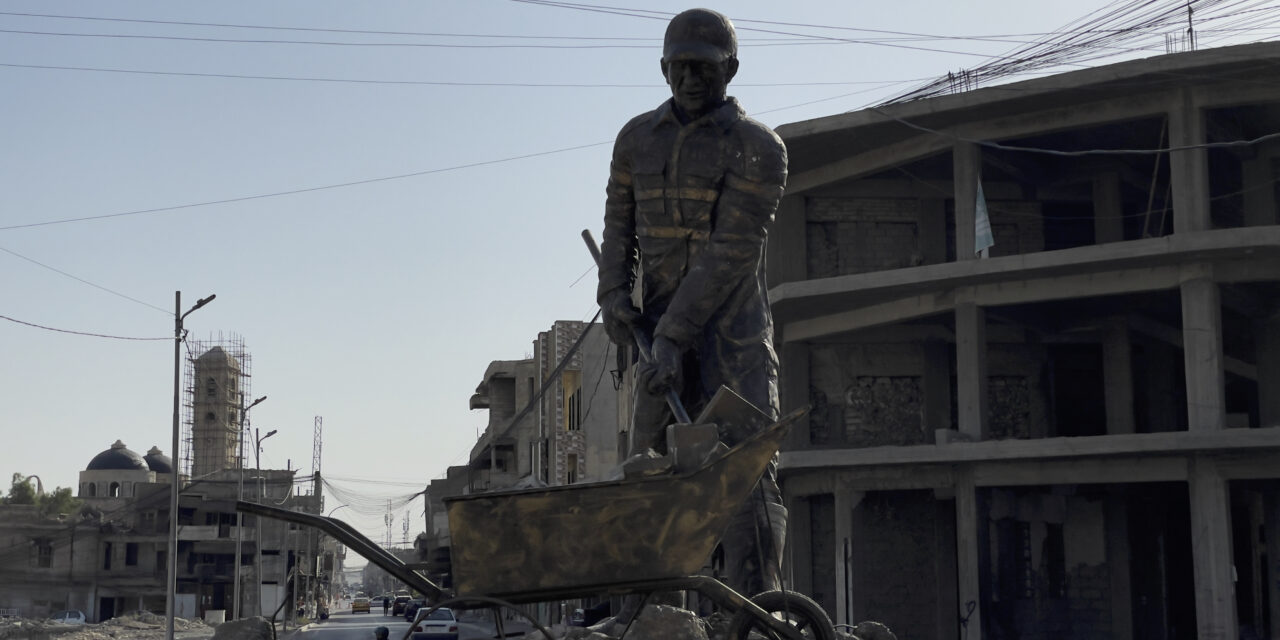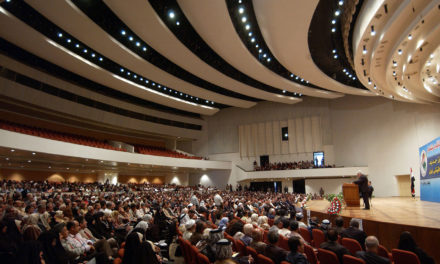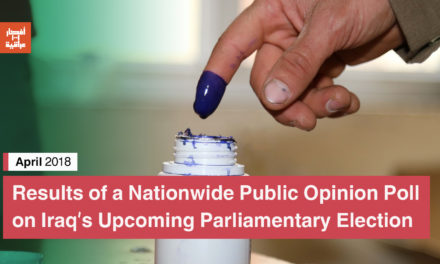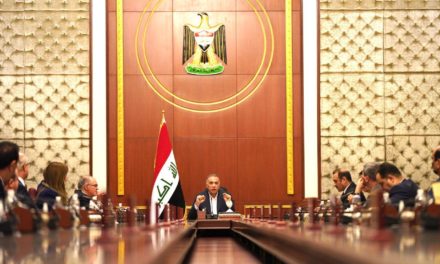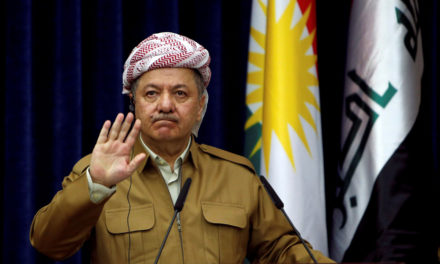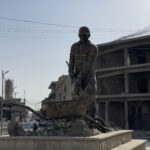Of the many wars and crises that Iraq has faced since its modern inception, it was the fall of Mosul to ISIS, ten years ago today, that provoked the existential question of whether the Iraqi state could endure. War journalists flocked to the country once more. Mostly non-Iraqi analysts, many feeling vindicated for their opposition to the 2003 invasion, smugly commented on the artificiality of Iraq’s borders and their inevitable demise (ironically, a sentiment shared by ISIS). A decade later, the survival of the Iraqi state is no longer a question. Even as the war in Gaza threatens regional spillover, Iraq is experiencing a new level of security and stability. It has fortunately shifted from fighting existential crises to dealing with unexceptional problems. It is in better shape than many of its neighbours, though that is not a high bar.
The fall of Mosul and the ensuing war with ISIS cannot be viewed in isolation from the post-2003 political transition. Even though the Americans had withdrawn by the end of 2011, the decisions they made during the occupation had reverberations later. In the security arena, the controversial American decision to disband the Iraqi army and the refusal to build an adequate air force would cost Iraq both people and territory. In the political arena, a key part of the post-2003 state-building process was ensuring political buy-in for the transition from the Sunni community, which understandably had concerns about what a government dominated by Shia and Kurdish opposition figures would look like. The American solution was to integrate the Sunni community by buying them in, but this was poorly handled by the Iraqi government after the Americans left, leading to the belief that the nascent political order could still be overturned militarily. Their grievances were exploited by ISIS and the rest, as they say, is history.
While much ink has been spilled over the disbanding the army (along with the policy of De-Ba’athification), the lack of an Iraqi air force gets much less attention. Iraq was left with no ability to protect itself from the sky, which allowed ISIS to cross the Iraq-Syria border and expand beyond the Syrian civil war. On the ground, the Iraqi Security Forces (ISF) were powerless to stop ISIS from making significant territorial gains. Corruption in the Iraqi government, along with the American failures outlined above, had left the security apparatus in a poor condition. For many Iraqis, the possibility of further ISIS encroachment was terrifying, as news traveled of massacres perpetrated against Yazidis, Assyrians, and Shia Turkmen. Furthermore, many of those who fled ISIS controlled areas brought harrowing tales with them, including the punishments inflicted upon Sunni detractors.
For the Shia in south and central Iraq, the massacre, recorded on video, of at least 1700 Shia army cadets at the hands of ISIS militants in Tikrit was a critical moment. A decade later, the United Nations Investigative Team to Promote Accountability for Crimes Committed by Da’esh (UNITAD) confirmed what many had already sensed, that there were “reasonable grounds to believe that the massacre was undertaken with a genocidal intent against Shia males, as part of the Da’esh/ISIL genocidal policy against Shias of Iraq”. Given the memory of sectarian violence in Iraq, it should not come as a surprise that the Shia mobilized nor that the mobilization was promoted by the fatwa of Grand Ayatollah Ali Al-Sistani on 13 June 2014.
Iraqi volunteers, too numerous to be absorbed by the ISF, joined volunteer paramilitary groups which later became known collectively as the Popular Mobilization Forces (PMF). They played a key role in turning the tide against ISIS and curbing its territorial expansion. Western commentators immediately seized upon the PMF as an agent of Iran, focusing on how it may derail Iraq’s monopoly on violence in the future. As laid out in my research, it is only a certain subsection of the PMF – which had existed prior to the fatwa – that has political ambitions.
The fact that Western media immediately fixated on the PMF’s role in the future, rather than its immediate role in the ISIS war, reveals the extent of Western hypocrisy towards Muslim communities. Eight years later, when Russia invaded Ukraine, the very same news outlets praised and defended the volunteer Ukrainian paramilitary groups. Many Western governments did not stop their own citizens from joining. There was no question of Ukrainian monopoly on violence in the face of an existential threat. Likewise, the United States continues to militarily and financially support the Peshmerga in Iraqi Kurdistan, which also started as voluntary Kurdish armed groups that have since struggled with institutionalization and de-politicization. The fascination with the religious identity of Shia armed groups – whether they are Iraqi, Lebanese, or otherwise – is discussed at length by the late Edward W. Said over forty years ago in Covering Islam and I will not belabour it further.
The liberated territories have come a long way since the defeat of ISIS in December 2017. Reconstruction is still ongoing, but people have returned home for the most part and are trying to rebuild their lives. There are issues of IDP renteirism that remains in Iraqi Kurdistan, as well as territorial disputes over areas like Sinjar, which faced the brunt of ISIS atrocities, that has prevented the full return of its local population. In an event at Boston College, Yazidi activist and Nobel Peace Prize winner Nadia Murad spoke of her fears that her community in Iraq would grow accustomed to life in the IDP camps and lose their desire to return home. There has been a lot of important research done on this area, and Iraqi policymakers need to take this issue more seriously. Iraq’s most vulnerable communities cannot continue to pay the price for the internal disputes between Baghdad and Erbil, just as they paid the price for internal disputes in 2014.
Ultimately, the war with ISIS must serve as the final one for Iraq. Rebuilding cities, institutions, and ironing out our federal and democratic structure must be done peacefully. This is difficult when political parties are armed and society has been militarized, but the appetite for violence is low. We saw this with the Tishreen protests in 2019 which grew larger as protestors were met with violence from the state. Anger over the death of Iraqis is what fueled the protest movement. That should be a costly lesson for Iraqi officials.
This is a short piece and cannot do justice to the legacy of the ISIS war. However, one of the outcomes of this war was the establishment of 1001 Iraqi Thoughts, which was initially created to provide a space for Iraqi narratives at a time when Iraqi voices, particularly in English, were absent. That is no longer the case today. While our hearts and minds may be in Gaza at the moment, the debate on Iraqi domestic and foreign policy continues and more and more Iraqis are engaging. More so than ever before, Iraq is being represented by Iraqis and maintaining that agency and ability to write freely cannot be lost.

Hamzeh Hadad
Hamzeh Hadad is a visiting fellow at the European Council on Foreign Relations and an adjunct fellow at the Center for a New American Security. In 2021, Hadad was an adviser to the president of the Trade Bank of Iraq.

